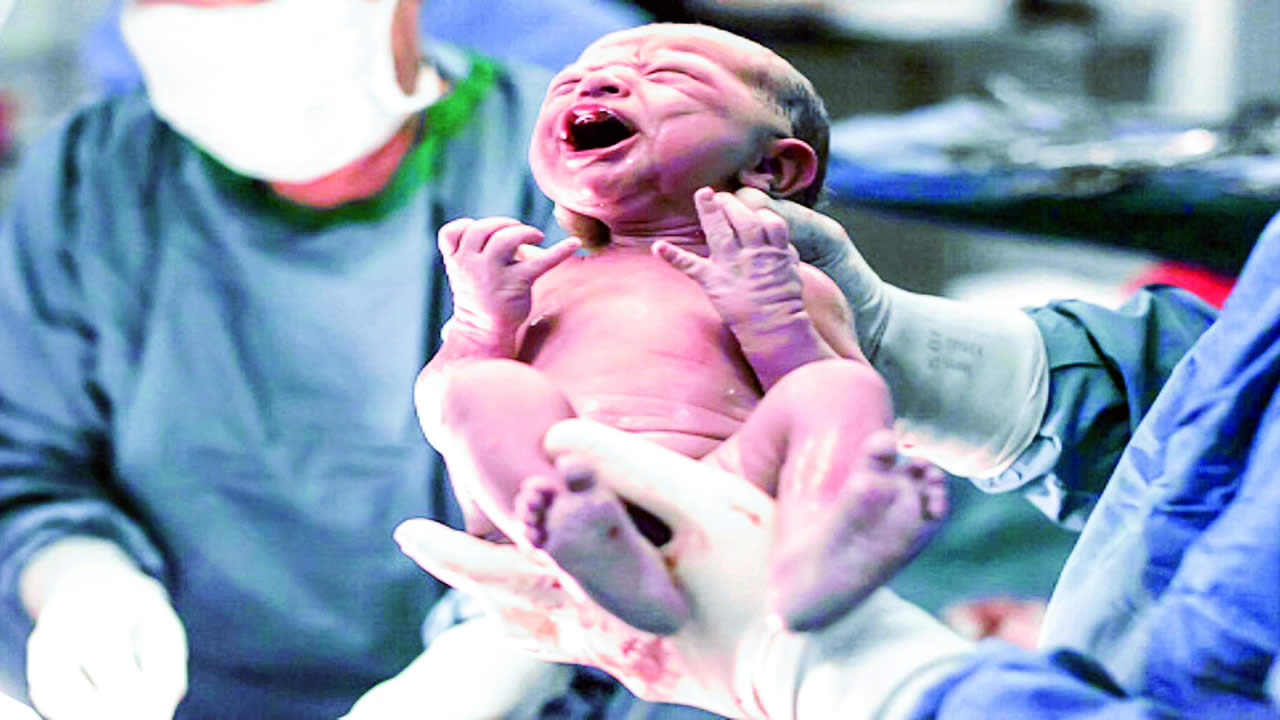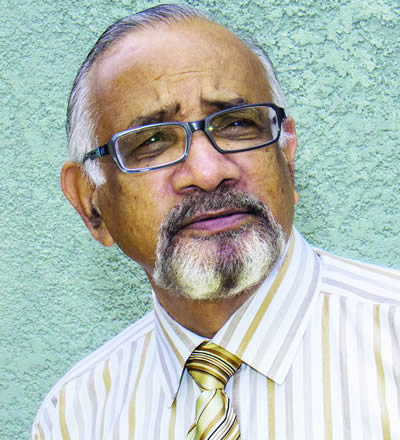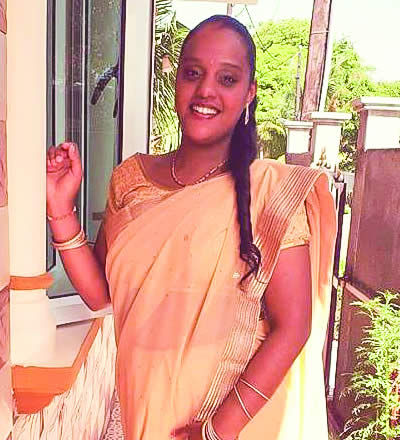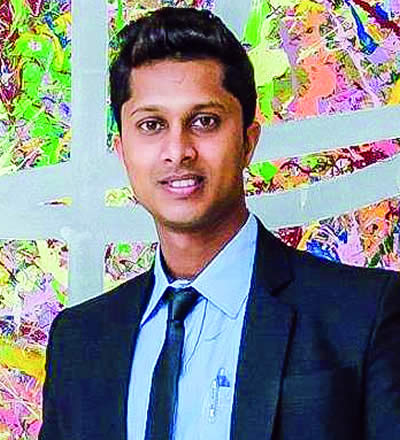Declining birth rate and ageing population : Mauritius in danger of a demographic time bomb
 Par
Nafissah Fakun
Par
Nafissah Fakun
 Par
Nafissah Fakun
Par
Nafissah Fakun

Over the past years, Mauritius has been witnessing a dwindling birth rate while the number for the ageing population is constantly on the rise. Recently, the authorities have been ringing the alarm bell and have encouraged young couples to have more than two or three babies. But Mauritian couples prefer to have either only one or a maximum of two kids. What explains this trend and how to encourage Mauritians to have more children? What could be the consequences?
The era where families had many children and where brothers and sisters had to share practically everything: Bedroom, clothes, toys, books and school materials, just to name a few, is long gone. Nowadays, the Mauritian family unit often consists of no more than one or two children. When asked about how many kids they are willing to have, the answer is categorical: One or two. Our demography has indeed undergone a great transformation. We are left with a growing number of pensioners while the number of births in the country is down. Experts in the field believe that if such a situation persists, Mauritius will be in the danger zone of a demographic time bomb. The economic impacts of the high birthrate and rapid population growth has been troubling Mauritius over the past years.

Within five years, the number of Mauritians aged 60 and over has increased by 19%. While the birth rate in the country has fallen by -43.50% over the last forty years, the number of pensioners rose to 219,520 at the end of 2018. The number of births registered during 2017 was 13,479, while the number of births was 23,859 in 1977. Besides, the number of infant deaths increased by 6.5%, from 154 in 2016 to 164 in 2017. The number of still births increased by 6.3 %, from 127 in 2016 to 135 in 2017.
In addition, according to the World Bank, the birth rate per woman in Mauritius has fallen from 6.17 in 1960 to 1.40 in 2016. The proportion of the population aged 0-14 years declined from 19.0% as at mid-2016 to18.5%, one year later. The proportion aged 15-64 years was 71.0 % for both 2016 and 2017 and the proportion aged 65 years and above increased from 10.0% to 10.5% during the same period.
 According to economist Zohra Gunglee, “a lower birth rate in Mauritius means that men and women now prefer to acquire additional education before starting a family. It may also mean that men and women choose to start their careers before having a family, while paying more taxes, enjoying the benefits of higher income and accumulating savings for their families’ future use. They want financial security because starting a family now requires big investments! And when they finally decide to have children, their professional situations as well as their advanced age in some cases allow them to have one or two children only.”
According to economist Zohra Gunglee, “a lower birth rate in Mauritius means that men and women now prefer to acquire additional education before starting a family. It may also mean that men and women choose to start their careers before having a family, while paying more taxes, enjoying the benefits of higher income and accumulating savings for their families’ future use. They want financial security because starting a family now requires big investments! And when they finally decide to have children, their professional situations as well as their advanced age in some cases allow them to have one or two children only.”
Zohra Gunglee believes that having children nowadays demands a huge investment in terms of not only time but also finance. “It is true that our grandparents tend to compare their time to ours saying that they grew up among five, eight or even ten children and that their father was the sole breadwinner and had a poor salary. However, the times have changed along with the demand coming from the children in terms of comfort, gadgets, technological devices and so on. It costs to have a child of the 21st century!” she utters.
What are the impacts of the trend of having one or two children only? “Delaying the time to have children or choosing to have fewer children,” says the economist, “will cause a significant gap in the labor market in the coming years. Fewer babies mean fewer workers and therefore less taxes in the future. This will also result in higher social and medical costs due to the aging of the population.”
As far as encouraging couples to have more children, Zohra Gunglee believes that the Government needs to put in place more adapted structures. “The government should continue to encourage people to have more babies, but it must ensure that there are enough childcare facilities, such as maternity wards, pediatricians, crèches, preschools, among others. It can bring new measures such as the extension of maternity leave, paternity leave, the granting of subsidies to new mothers to cover basic needs for baby food and accessories, children’s pensions, and so on,” trusts Zohra Gunglee.
 According to the psychologist and ethnologist, it is after the country’s Independence that the demography began to change. “In the 50s and 60s, families had many children and some had up to more than ten children. But after the Independence of our country, the trend reversed. The vision of the Mauritians itself had changed. Families who had experienced poverty did not want their children to suffer the same fate. For couples, having fewer children meant less or almost no poverty and a better future. In addition, the country’s politics, too, had changed. The number of inhabitants continued to grow while the country is small in terms of area.
According to the psychologist and ethnologist, it is after the country’s Independence that the demography began to change. “In the 50s and 60s, families had many children and some had up to more than ten children. But after the Independence of our country, the trend reversed. The vision of the Mauritians itself had changed. Families who had experienced poverty did not want their children to suffer the same fate. For couples, having fewer children meant less or almost no poverty and a better future. In addition, the country’s politics, too, had changed. The number of inhabitants continued to grow while the country is small in terms of area.
During that time, we did not have many schools, facilities, and infrastructure adapted to support the growing population and we also had economic constraints in the country. It was from there that the ‘Family Planning’ platform was launched. So, I would say, it was also a political decision to lower the number of births per family.”
For Dr. Motah, it is a set of political, social, cultural and economic factors that influenced the trend. “They influenced the general opinion about demography. It is true that the government’s Welfare State has provided many facilities and support to families in terms of housing, pension, among others. However, mindsets have changed. Families and neighbors used to stick together to make both ends meet. There was a sense of sharing, caring and hospitality. But with the evolution in the country, the economic changes and the change of the standard of living, people developed a more individualistic mind.”
According to Dr. Motah, the priorities of the Mauritian families have also changed. “With development and globalization, we are giving more importance to money and material goods. “Mauritians are focusing more on their careers. Work to have money so that you can afford material goods such as houses, cars, among others. Families want to make sure they have a certain financial status and also offer the necessary material comfort to their children. So they prefer having fewer children in order to be able to afford the demands better.” However, he believes that this may also be a misperception. “Have we done a study to find out if really having one or two children ensures a better future and better material comfort?” he wonders.
In terms of impacts, he believes that the country’s economy is already experiencing a setback. “Our workforce is already slowing down. For example, we have to bring in foreign workers for the skilled jobs. At the family and social level, we are losing our sense of sharing, caring and our family values. Children now have everything for them and they do not know what it means to work hard in order to achieve higher. They are more individualistic.”
Dr. Motah believes that more structures are needed to encourage couples to have more children. “I do not think we have to give allowances. I trust that it is necessary to set up structures at the level of education, employment, society, leisure, and the church (religion) to help the development and empowerment of every individual in order to ensure the integration of all into our society and to eliminate evils such as drugs, among others.”
 Glorine Maloupe-Luchoo is a young married woman and her desire is to have two children only. She argues that having a child means responsibility and planning. “Before having a child, a couple must prepare themselves mentally, emotionally and above all this, they must be financially strong and stable. If young couples prefer to have one or two children, it is to better plan for the future of the child. The worst factors are that purchasing power is too high for us, and this creates a disparity between the well-off and less fortunate families. The reception of a child deserves to be done with patience and love.”
Glorine Maloupe-Luchoo is a young married woman and her desire is to have two children only. She argues that having a child means responsibility and planning. “Before having a child, a couple must prepare themselves mentally, emotionally and above all this, they must be financially strong and stable. If young couples prefer to have one or two children, it is to better plan for the future of the child. The worst factors are that purchasing power is too high for us, and this creates a disparity between the well-off and less fortunate families. The reception of a child deserves to be done with patience and love.”
She states that despite the fact that our education system is free, there are always parents who fail to buy school materials due to the exorbitant prices. She also explains that in order to bring up a child with good moral stability, parents must give them time and attention. So, Glorine Maloupe-Luchoo believes that it is high time to review work schedules to encourage young couples to have more children. Another measure proposed by our interlocutor is that the Government should offer subsidies for school materials.
 Asvin Adaya is of the opi-nion that parents prefer to have one or two children because they are convinced that this is sufficient according to their financial situation, time, patience and their commitment to raising children to become successful adults. “Having a single child allows the parent to be more attentive to the individual emotional needs of the child alone.”
Asvin Adaya is of the opi-nion that parents prefer to have one or two children because they are convinced that this is sufficient according to their financial situation, time, patience and their commitment to raising children to become successful adults. “Having a single child allows the parent to be more attentive to the individual emotional needs of the child alone.”
In addition, he believes the Government has a vital role to play in encouraging couples to have more children. “They will need to review certain laws and benefits to take into consideration the well-being of children as they develop into adulthood. This will create a comfort zone for the future parents. Taxes on baby products, baby toys, baby food and many more day-care centers must be reviewed.”
 Manveer Aubeeluck, father of a little girl, does not wish to have a second child. Main reason: to give better guidance to his only daughter. “The cost of living has increased. A baby is really expensive. For example, baby’s milk, diapers are just basic products but they are expensive. It’s a huge investment. Another reason is childcare. There is a price to pay. Young couples are working parents and so they must ensure that someone is watching over their children. They do not have enough time to give to several children. So they focus on one or two only.”
Manveer Aubeeluck, father of a little girl, does not wish to have a second child. Main reason: to give better guidance to his only daughter. “The cost of living has increased. A baby is really expensive. For example, baby’s milk, diapers are just basic products but they are expensive. It’s a huge investment. Another reason is childcare. There is a price to pay. Young couples are working parents and so they must ensure that someone is watching over their children. They do not have enough time to give to several children. So they focus on one or two only.”
But another reason put forward by this entrepreneur is infertility. “We can ask parents to conceive more children, but many parents are barely able to conceive because of health problems. Often, there are couples who spend a lot to be able to have a child. Another problem is that some women cannot have more than two children because they have gone through two caesareans and the doctors forbid them to have more children.”
 J'aime
J'aime